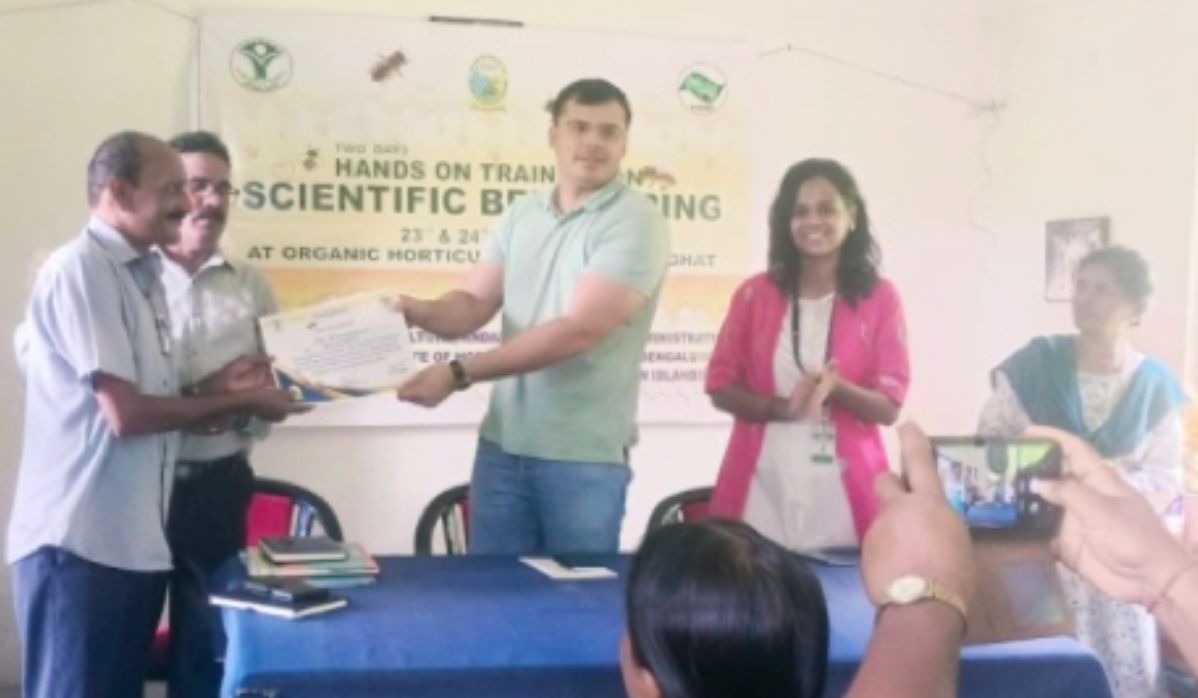Tarun Karthick
Port Blair, 29 July 2024
A hands-on training program on “Scientific Beekeeping” was held from July 23 to 24, 2024, at the Organic Horticulture Farm in Sippighat, South Andaman. The program aimed to equip beekeepers with the knowledge and practical skills needed to promote effective and sustainable beekeeping practices.
The valedictory function on July 24 featured Mr. Abhishek Gulia, the Director of Agriculture, as the chief guest. In his address, Mr. Gulia emphasized the importance of integrating scientific knowledge with traditional beekeeping methods to enhance productivity and sustainability. He encouraged farmers, members of self-help groups (SHGs), and youth to adopt beekeeping practices that offer dual benefits such as honey production, by-products, and pollination services, which in turn increase crop yield and productivity. “By supporting both honey production and pollination, beekeeping contributes to agricultural productivity, ecological health, and economic stability,” he stated.
During the event, the Director of Agriculture presented certificates to 35 participants who completed the two-day training program. The program featured a series of sessions, including hands-on experience with good apiary management practices, interactive lectures, and field demonstrations. Participants gained advanced techniques in hive management, pest control, honey extraction, bee health, and the economic aspects of beekeeping.
Mr. Ramesh Kumar, Joint Director (Agriculture), also spoke at the event. He highlighted that the knowledge and practical skills gained through this training would ultimately benefit the local farming community by encouraging the adoption of sustainable beekeeping practices. Additionally, various issues related to agriculture were addressed and resolved during the program.
The training was a significant step towards promoting sustainable agricultural practices in South Andaman, ensuring both ecological balance and economic stability for the local community.

